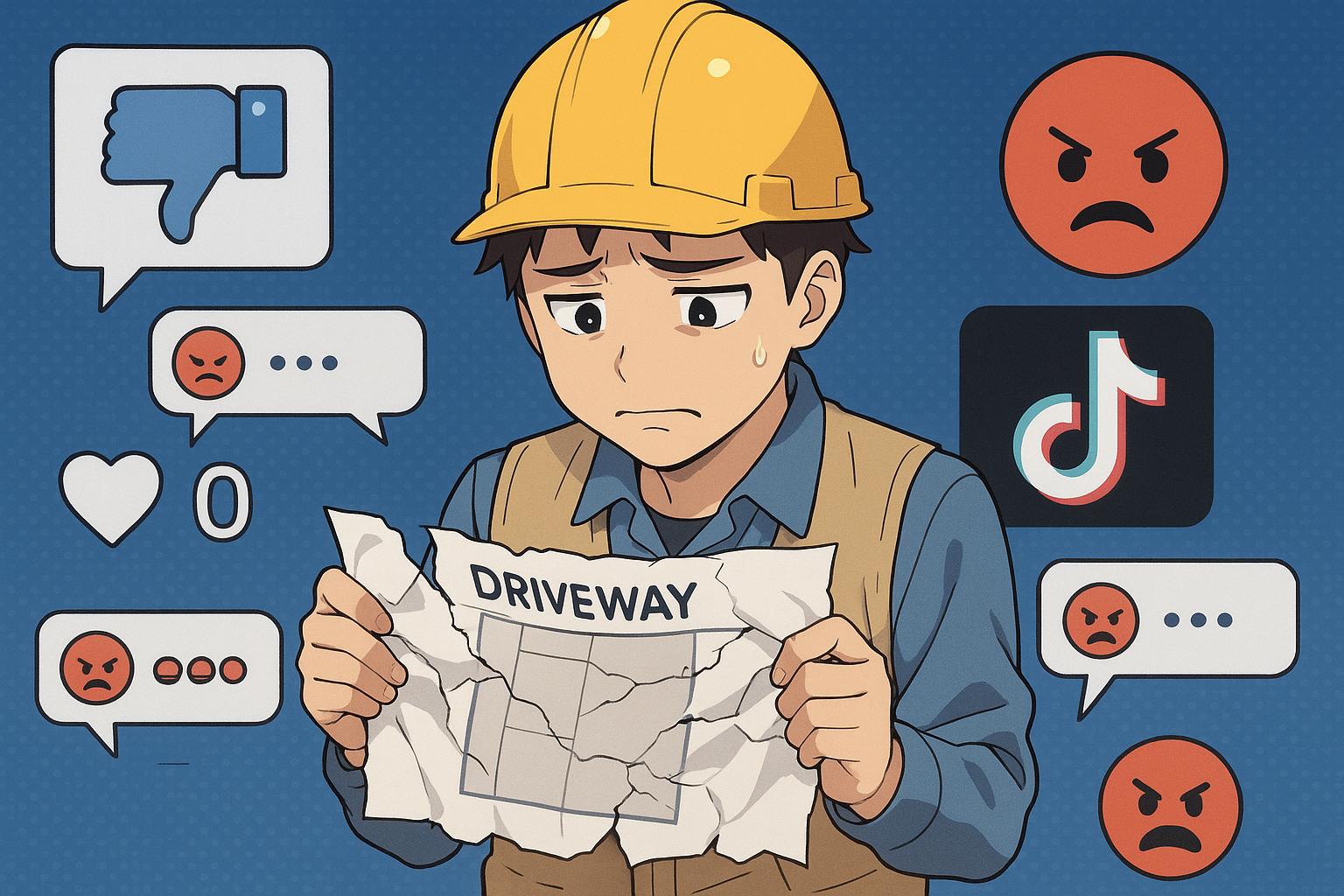In a recent incident that has highlighted the perils of viral social media culture, a builder from Leeds has admitted to the reckless nature of a TikTok stunt that falsely portrayed a homeowner as a bill-dodger. Alex Gray, who worked for Kendall Contractors Ltd, posted a video that claimed to show the destruction of a woman's driveway due to unpaid work, attracting nearly one million views before being taken down. Following widespread outrage and a public backlash, Gray has since resigned from his position, stating that he takes "full responsibility" for the fallout.
The video depicted a crew seemingly destroying a newly completed tarmac driveway, captioning it with the sarcastic message: “Can’t pay? We’ll take it away.” However, the reality was far different. The homeowner, a woman in her sixties, had actually paid her £3,800 bill in full the previous year. The distressing misunderstanding arose from necessary resurfacing work caused by damage from a burst water main and gas pipe issues that had precluded the enjoyment of her completed driveway. Gray's ill-considered stunt not only misrepresented the situation but also damaged the homeowner’s reputation, leading her to feel the brunt of public scrutiny online, as many viewers believed the video’s misleading narrative.
In a candid admission to the media, Gray expressed remorse and acknowledged his mistake. He shared that he had personally apologised to the homeowner and accepted that his actions were misguided, stating, “You don’t realise how powerful social media is… it’s a lack of intelligence on my own behalf.” This incident serves as a cautionary tale, illustrating the potential ramifications of viral content. Gray’s resignation from Kendall Contractors underscores the serious consequences that often accompany thoughtless social media posts.
This scenario is not unique. Across the globe, incidents of contractors taking extreme actions, such as destroying completed work to enforce payment, have also gone viral. In one notable case in Clare, South Australia, tradies bulldozed a homeowner's driveway over a disputed bill, igniting public debate about contractor rights and the legal implications of such actions. Similarly, a landscaper in Florida repossessed driveway pavers after a homeowner failed to settle their account. Such confrontational tactics raise ethical questions about the means employed to collect debts, as well as the impact on individuals caught in the crossfire.
Public backlash against builders taking drastic measures has often been intense. Many people empathise with contractors facing non-payment, yet question whether destroying property is an appropriate or legal response to unpaid bills. A recent incident in Cheshire, England, highlighted similar tensions when a contractor filmed the demolition of a client's patio, further exacerbating discussions on social media regarding contractor rights and client obligations.
In each case, the intersection of social media, public perception, and contractor-client relationships emerges as a complex landscape. As the lines blur between accountability and spectacle, the ramifications of viral content can lead to significant career and personal repercussions, reinforcing the need for responsible digital engagement.
In this evolving discourse, the essential lesson remains clear: actions driven by the pursuit of online fame can yield unintended consequences, both personally and professionally. Alex Gray's experience serves as a reminder to all, illustrating the critical importance of verifying facts before sharing potentially damaging content online.
Source: Noah Wire Services
